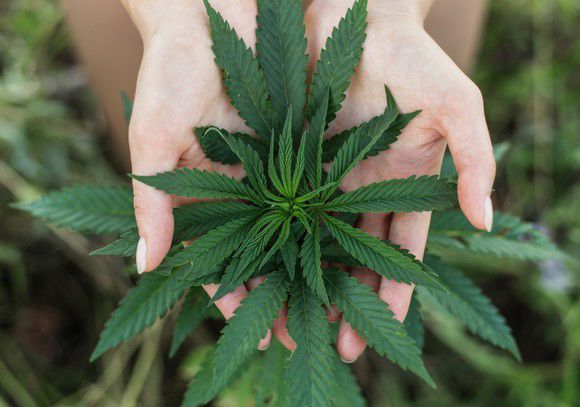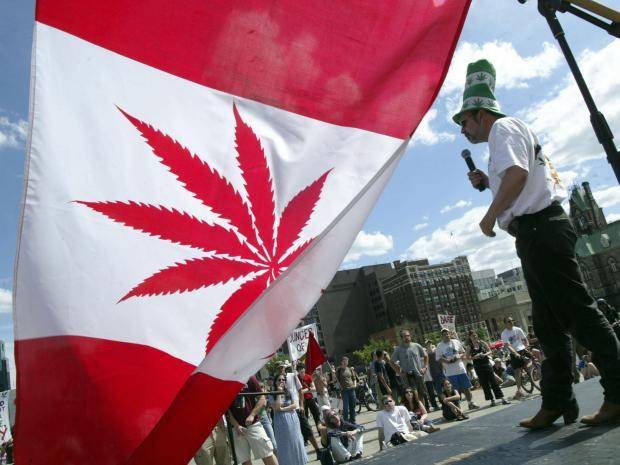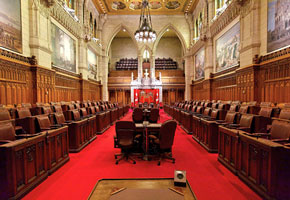Prime Minister Justin Trudeau has surprised premiers with a plan to impose a 10-per-cent federal tax on recreational marijuana and split the expected new revenue 50-50 with the provinces.
With the clock ticking towards the Liberal government’s goal of legalizing marijuana by July, 2018, Ottawa and the provinces are working to answer the many questions raised by the change, including the price, age limits and how the product will be sold.
After a day-long private meeting that touched on a wide range of topics, Mr. Trudeau confirmed to reporters that he delivered an opening proposal for how marijuana should be taxed.
“The proposal is to divide the revenue 50-50 between the federal government and the provincial government,” Mr. Trudeau said. “The provinces argued that they are going to be bearing more costs, certainly up front in terms of installing the regime. And I certainly said we’re open to looking at that and discussing and making sure that we are doing this right.”
Negotiations over the taxation of marijuana will continue and the subject is scheduled to be discussed at a face-to-face meeting of finance ministers in December.
Trudeau proposes dollar-a-gram excise tax on legal marijuana
A provincial source said the pot tax came out of the blue and the premiers were completely taken aback. Liberal MP Bill Blair, who is the parliamentary secretary to the justice minister and in charge of the marijuana file, had been called in to brief the premiers when he dropped the proposal on the table.
The tax would be $1 per gram tax on purchases under $10, and 10 per cent on amounts above $10. Ottawa has not provided an estimate of total revenues legalization would raise. The Parliamentary Budget Office estimated last year that tax revenues would be in the hundreds of millions a year initially and could grow.
A number of premiers – lead by Alberta’s Rachel Notley and Quebec Premier Philippe Couillard – immediately objected to splitting the tax revenue with Ottawa, according to the source. Ms. Notley told the Prime Minister the provinces are carrying most of the costs of legalizing marijuana and should have most of the tax revenue.
In addition to discussing marijuana, the first ministers also met with Finance Minister Bill Morneau about Ottawa’s controversial plan to change the tax rules governing incorporated small businesses. Consultations formally closed on Monday, and Mr. Trudeau said the government will respond within “a number of weeks” with a revised plan that takes into account the concerns raised by premiers and small-business owners.
Premiers said they welcomed comments from Mr. Morneau on Tuesday that the government would address potential negative consequences for intergenerational transfers of businesses such as family farms. One provincial source said it appeared Mr. Morneau was prepared to “walk back” his original plan. However, the provinces reserved their final opinions until they see how Ottawa alters its proposals.
Don Morgan, Saskatchewan’s Deputy Premier and Minister of Justice, who attended the meeting in place of Premier Brad Wall, said the small-business tax changes as originally proposed by the federal government could have a profoundly negative effect in his province.
“We have grave concerns,” he said. “It is our hope and expectation that Minister Morneau will make some changes to ensure that it is fair and equitable, not just for large corporations, but for family farms, for medical professionals that we do not want to see leave our country. So we regard it, at best, as a work in progress, but we urge the federal government to take some careful time to reconsider.”
The federal proposals apply to owners of incorporated small businesses and cover three broad areas. One would prevent the use of income “sprinkling” to family members who are not directly involved in the business as a strategy for paying less tax. The second would restrict the conversion of dividends into lower-taxed capital gains. The third would restrict the use of incorporated small businesses as a vehicle for making passive investments unrelated to the business.
After meeting the premiers, Mr. Morneau told reporters he had no timetable for when he would reveal his revised plan. He would not be pinned down on whether the tax reforms would be in the fall economic update or next year’s budget.
However, the minister said the government will be guided by specific principles, including “to make sure that farmers and fishers and businesses in general aren’t precluded from passing their business to the next generation.” He also said that female entrepreneurs and professionals, such as doctors, will be able to use the tax system to “save within their organization to deal with maternity leave.”
Representatives of the First Nations, the Inuit and the Métis met for a little more than an hour on Tuesday morning with Mr. Trudeau and provincial premiers. Indigenous leaders later said they were frustrated with the brief amount of time devoted to their concerns and that they expect more discussion and real progress in the months ahead.
As for marijuana, B.C. Premier John Horgan said the idea of sharing revenue with Ottawa was the “first time” he had heard of it.
“That’s not something we’d contemplated before. So there was a good deal of discussion around that,” he said. “I believe provinces are concerned that there’s a whole bunch of costs being imposed on us in terms of distribution, in terms of regulation, in terms of making sure that the distribution chain is free from criminal elements and so on. But now we’re going to have to share whatever modest revenue there might be.”
Mr. Horgan said Canadians should be dispelled of the notion that governments will be “swimming in cash” after legalization.
“It was a good discussion. But this excise tax thing caught us a bit by surprise.”
credit:420intel.com













